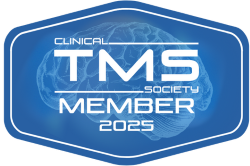
JOIN US! TMS Education Event - Tuesday, April 9th 5:30pm pst - Click to learn more!
Borderline Personality Disorder
TMS for Borderline Personality Disorder
Borderline Personality Disorder (BPD) is a multifaceted mental health disorder marked by fluctuating mood patterns, self-perception, and behaviors. These characteristics frequently lead to spontaneous actions and difficulties in interpersonal relationships. People with BPD often undergo severe bouts of anger, depression, and anxiety, which can persist for several hours to days.
Patients with BPD may also experience issues with self-image, which can affect their mood and relationships with others. Their interests and values can change rapidly. They may view things in extremes, such as all good or all bad, and their opinions of other people can also change quickly.
A person who is regarded as a friend one day might be viewed as an adversary or betrayer the next. These fluctuating emotions can result in intense and unpredictable relationships.
Why TMS for Borderline Personality Disorder?
Key characteristics of BPD include:
- Emotional Instability: Individuals may experience rapid mood swings, intense emotions such as anger, anxiety, or sadness, often with little provocation.
- Fear of Abandonment: People with BPD may have an intense fear of being abandoned or left alone, even when there are no indications of separation.
- Unstable Relationships: Relationships may be characterized by alternating extremes of idealization and devaluation, often leading to intense and unstable interpersonal relationships.
- Impulsivity: This may manifest in risky behaviors, such as reckless driving, substance abuse, or binge eating.
- Self-Image Issues: Individuals may have a distorted and unstable self-image, affecting moods, values, opinions, goals, and relationships.
- Self-Harm and Suicidal Behavior: Self-harming behaviors, including suicidal threats or attempts, are not uncommon in individuals with BPD.
- Chronic Feelings of Emptiness: A persistent sense of emptiness or boredom is often reported.
- Intense Anger: Difficulty controlling anger or experiencing inappropriate, intense anger can be a symptom.
- Stress-Related Paranoid Thoughts: In times of extreme stress, paranoid thoughts or dissociative symptoms may occur.
Traditional Approaches to Care:
- Empathetic Psychotherapy: Supportive therapies like Dialectical Behavior Therapy (DBT) are often the first line of treatment, offering skills to manage emotions and improve relationships.
- Medication Use: While no medication specifically treats BPD, some may be used to alleviate co-occurring symptoms under careful medical guidance.
- Community and Support: Support groups and community resources play a vital role in providing a supportive environment.
How TMS Supports Individuals with BPD:
Our clinic offers Accelerated TMS as a gentle, non-invasive option for those exploring treatments beyond traditional therapy and medications. It's a treatment that involves minimal discomfort and targets the neurological underpinnings of emotional intensity and instability. Our approach is customized, considering each individual's unique experience with BPD, aiming to reduce emotional distress and enhance overall well-being.
Key Benefits of TMS for BPD:
- Non-invasive and Drug-free: Offers an alternative for those who prefer not to take medication or want to avoid the side effects.
- Focused treatment: Can target specific brain areas associated with the emotional and behavioral symptoms of BPD.
- Symptom reduction: May help in alleviating the intense emotional pain and mood instability.
- Complement to therapy: Can be used alongside psychotherapy and medications to potentially enhance overall treatment effectiveness.
- Improvement in relationships and function: By reducing symptom severity, individuals may find improvements in their relationships and daily functioning.
What patients are saying
"Desperate and struggling, my therapist recommended TMS. With an open mind and cautious optimism, I tried it. In just five days, my anxiety improved significantly. The clinic staff was fantastic, offering counseling and education on anxiety. The whole experience, including aftercare and follow-up, made a huge difference. I wholeheartedly recommend Accelerated TMS at Kind Health Group. Thank you, Dr. Nanos, and your amazing team"
Ward, H. B., Yip, A., Siddiqui, R., Morales, O. G., Seiner, S., & Siddiqi, S. (2020). Borderline personality traits do not influence response to TMS. Journal of Affective Disorders, 279, 316-321. https://doi.org/10.1016/j.jad.2020.11.054
Abstract Summary: The study investigates whether Borderline Personality Disorder (BPD) affects responsiveness to Transcranial Magnetic Stimulation (TMS) in patients with Major Depressive Disorder (MDD). The study conducted a retrospective analysis of individuals receiving TMS (n=356) at McLean Hospital and included individuals receiving Electroconvulsive Therapy (ECT) (n=1434) as a control. All individuals completed the McLean Screening Instrument for BPD (MSI-BPD) at baseline, and response to treatment was measured by the Quick Inventory of Depression Symptomatology Self-Report (QIDS-SR). The results suggested that borderline personality traits did not affect treatment response to TMS for MDD. However, BPD traits modestly predicted response to ECT, consistent with the literature. The study concludes that BPD does not impair response to TMS, indicating that TMS might be a viable treatment option for individuals with MDD, regardless of comorbid BPD traits. The findings require replication in a clinical trial to further validate the results.
Reyes-López, J., Ricardo-Garcell, J., Armas-Castañeda, G., García-Anaya, M., Montis, I. A., González-Olvera, J., & Pellicer, F. (2017). Clinical improvement in patients with borderline personality disorder after treatment with repetitive transcranial magnetic stimulation: preliminary results. Revista Brasileira de Psiquiatria, 40(1).
https://doi.org/10.1590/1516-4446-2016-2112
Abstract Summary: The study aimed to assess the clinical improvement in patients with borderline personality disorder (BPD) following treatment with repetitive transcranial magnetic stimulation (rTMS) over the right or left dorsolateral prefrontal cortex (DLPFC). In this trial, 29 patients from the National Institute of Psychiatry, Mexico, were randomized into two groups to receive 15 sessions of rTMS, either at 1 Hz over the right DLPFC or at 5 Hz over the left DLPFC. The effectiveness of the treatment was evaluated using various scales, including the Clinical Global Impression Scale for BPD (CGI-BPD), Borderline Evaluation of Severity Over Time (BEST), Beck Depression Inventory (BDI), Hamilton Anxiety Rating Scale (HAM-A), and Barratt Impulsiveness Scale (BIS). The results indicated significant reductions in psychopathologic domains and total scores on all scales in both groups, suggesting that both rTMS protocols led to global improvement in BPD severity and symptoms, particularly in impulsiveness, affective instability, and anger. This study supports further exploration of rTMS as a therapeutic option for BPD.
If this is a life-threatening emergency, please call 911 or the National Suicide Prevention Lifeline














































